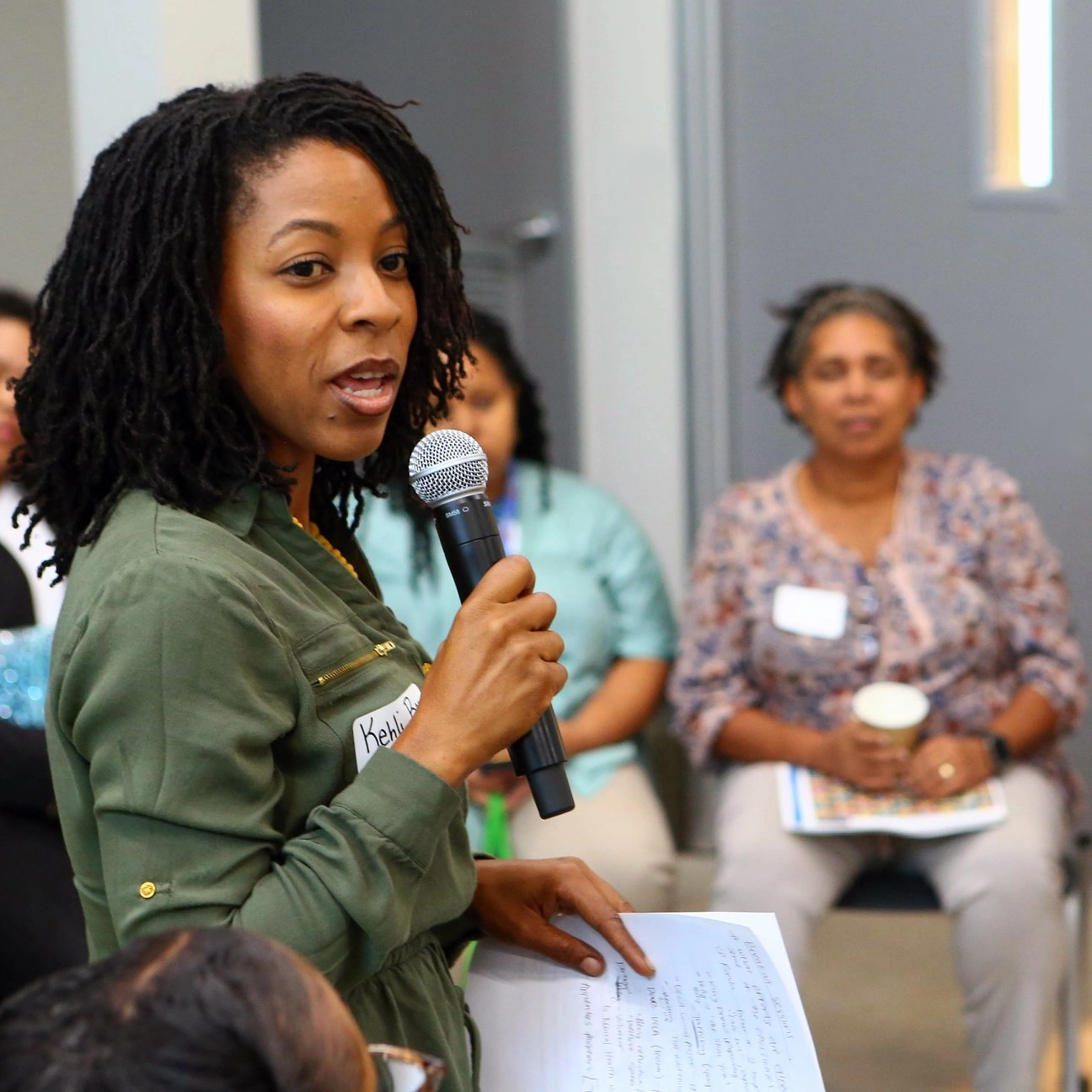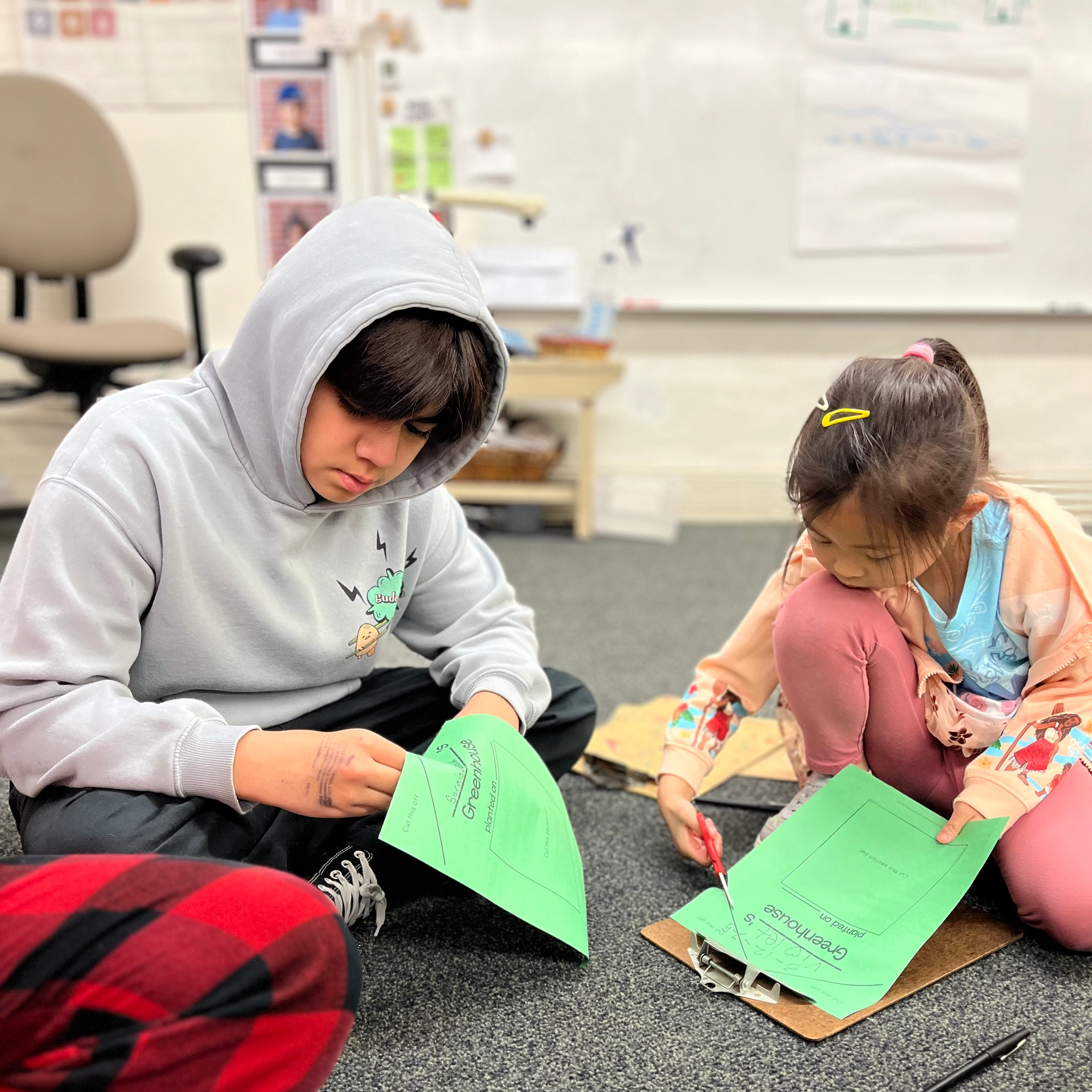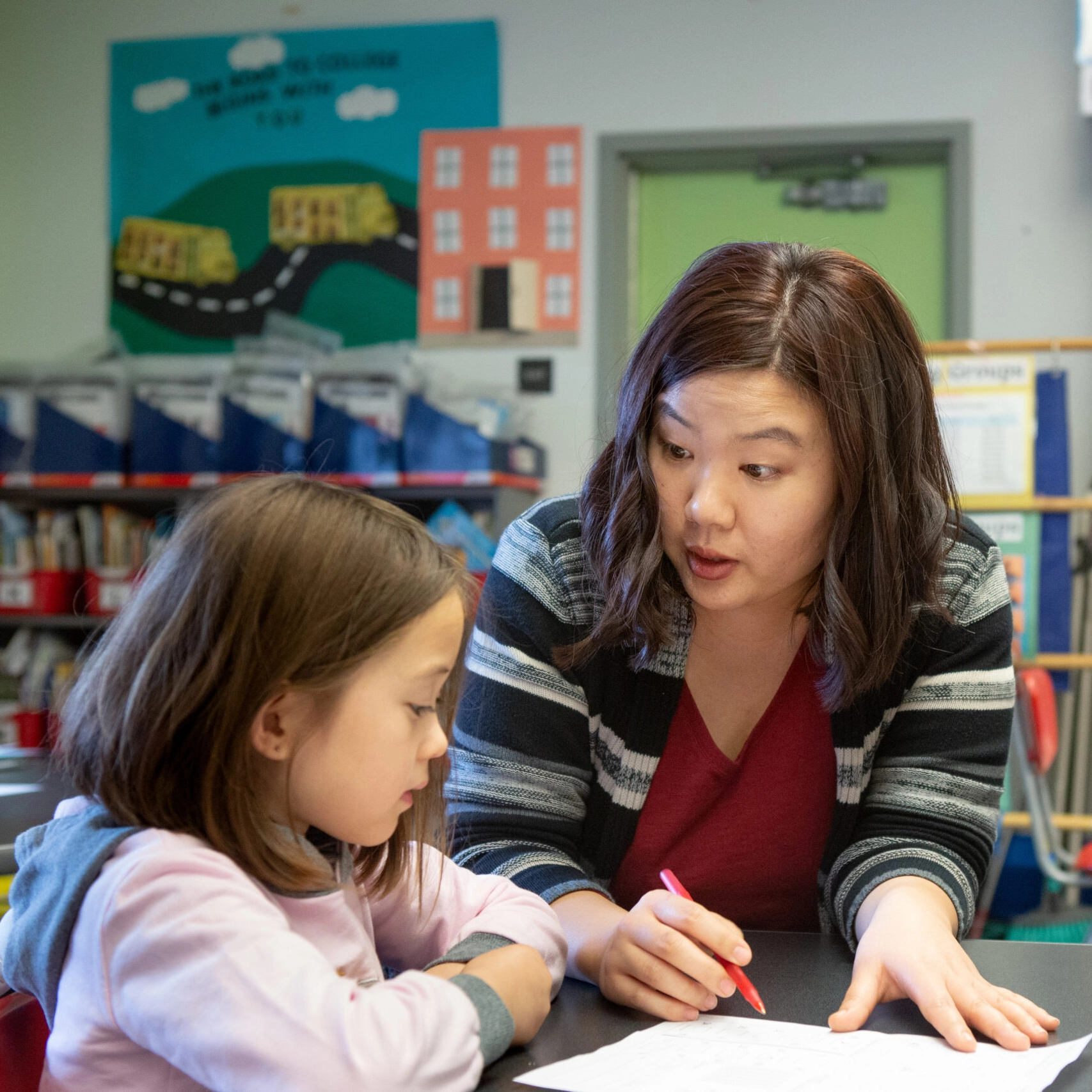Transforming Access: The Computer Science Equity Project at UCLA
By John McDonald
November 14, 2025
The lack of equity in computer science education has long been easy to see. It’s there in Black and white and Brown, and among girls and boys. While participation in computer science has grown, students of color, low-income, and female students remain underrepresented in the field. Just 45% of high schools offer computer science. Black and Latino students are four times less likely to take the Advanced Placement course in computer science than their white and Asian peers. Female participation in computer science is well below half of male exam takers in AP courses.
The UCLA Computer Science Equity Project is working to change that. With a focus on equity, the program is engaged in significant research that informs and shapes educational practice and public policy to increase access to high quality K-12 computer science education.
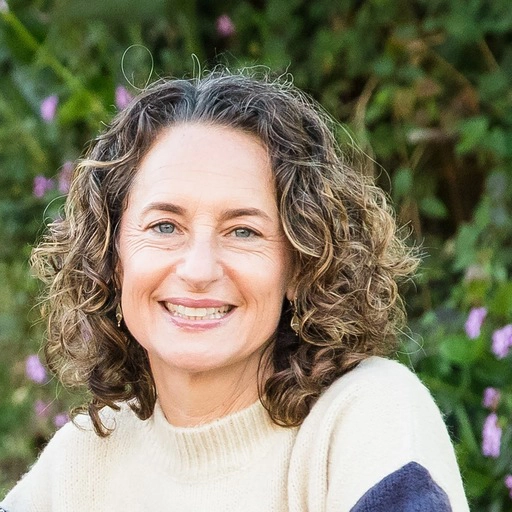
“We believe computer science is foundational, and all kids should have access to it,” says Julie Flapan, director of the project. “The heart of our research is looking at how teaching and learning opportunities are distributed in computer science education, why disparities in access exist across lines of race, gender and income, and how can we close those gaps. Our research is designed to strengthen educational practice and inform policy to eliminate the barriers to equitable opportunities.”
The research effort by the CS Equity Project grows in part from the early work of UCLA Department of Education senior researcher Jane Margolis, whose 2008 book, “Stuck in the Shallow End,” shone a light on gaps in access to computer science education and the implications for future opportunities. MIT Press described the book as, “a story of how inequality is reproduced in America—and how students and teachers, given the necessary tools, can change the system.”
The CS Equity Project has used their research to pursue that cause with a passion.
Part of UCLA Center X, the CS Equity Project has grown into a nationally recognized research organization conducting quantitative and qualitative research examining structural inequalities such as access to courses and teachers and the quality of curriculum and pedagogy. The work challenges belief systems or stereotypes about the types of students that can excel in computer science, and informs and supports educational policies to increase students’ access, opportunities and learning.
“We are working at the intersection of research, practice and policy to expose the root causes of inequality and build systemic, scalable, and sustainable support for teaching and learning computer science in California,” Flapan says.
You can see that approach and strategy across the work from the earliest days of the CS Equity Project to now.
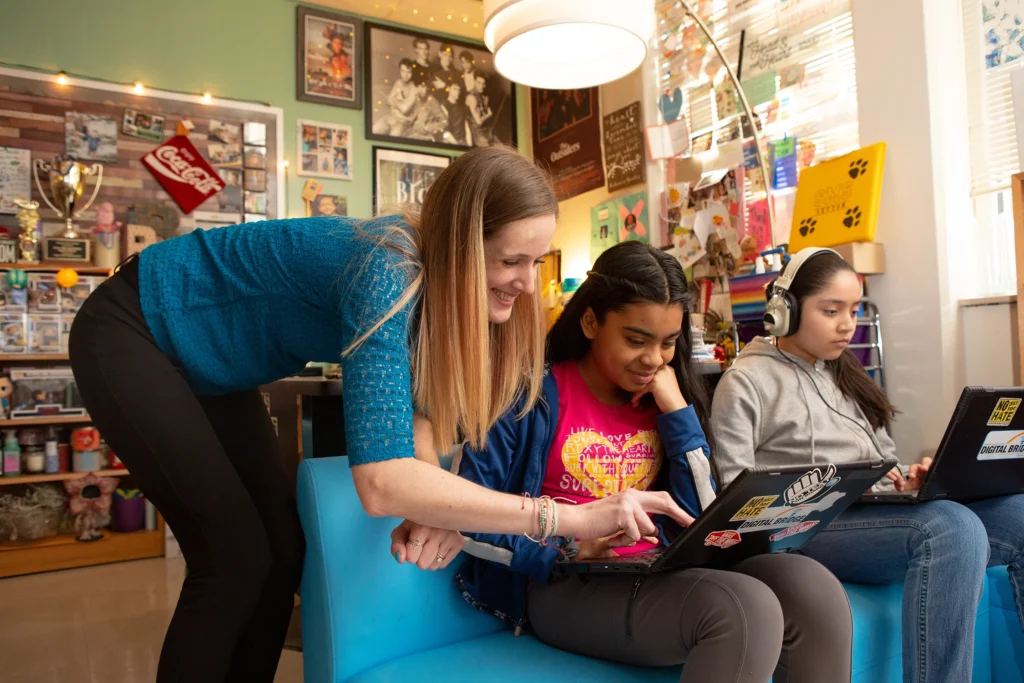
When the CS Equity Project first started with Margolis and Joanna Goode researching why there were so few Black and Brown students studying computer science, they realized they didn’t want to do research that just went on to sit on the shelf. They wanted to apply what they learned to the classroom.
To do that, the CS Equity Project developed a curriculum called Exploring Computer Science and started doing research on that curriculum and teaching practice. One of the things they learned was that teachers were essential in the development of curriculum and the delivery of instruction in computer science but wanted and needed meaningful support from principals and administrators. They also said funding and support from the state was needed to grow the effort.
Those findings drove questions about how the CS Equity Project could scale and sustain the work beyond the classroom. What could be done to empower principals and school leaders and administrators to support, scale and sustain computer science education? With a grant from the National Science Foundation, Flapan and colleagues started SCALE-CA, a research practice partnership engaging teachers and school leaders across the state. Through interviews with school administrators about best practices to support teachers and computer science, the findings were used to develop an implementation guide co-designed by and for school leaders.
School leaders loved the guide but wanted more. They needed a community of practice, case studies, ongoing conversations and the opportunity to learn more. To meet those needs, the CS Equity Project developed an interactive workshop for school leaders and then worked to scale it across California. They shared the evidence of their success through Computer Science for California (CSforCA), a statewide coalition, to inform and push for legislative changes to ensure that more schools had opportunities to offer computer science, and more educators had opportunities for learning and professional development.
Founded by Flapan and co-directed with Allison Scott of the Kapor Center, the effort brings educators, industry leaders, nonprofit organizations, and higher education institutions together to inform and advocate for high-quality computer science education with an emphasis on girls, low-income students, and students of color. A key element of CSforCA is listening to and engaging with a wide range of voices in the computer science education community and beyond.
“It’s important that we have multiple voices at the table. We want to hear from people in higher education, from policymakers, from industry, from nonprofit organizations, from parents and families,” says Flapan. “Having those conversations is essential to using the research and the evidence that we have collected to inform policy and make sure that policy really supports teaching and learning.
“The idea for CSforCA was to engage different practitioners on the ground implementing computer science education to be involved; we need their insight and expertise. They need to be at the table to deliberate and inform policy,” Flapan continues. “It’s a reciprocal process. As a coalition, we ask questions about the impact on local implementation, we think about the unintended consequences of policies, we ask if they really support equity.”
Another example of engaging with voices across the spectrum can be seen in the Student Voices research, currently underway with district and education partners in urban Los Angeles and rural Mississippi. The project seeks to understand and highlight the perspectives and experiences of youth that have historically been underrepresented and whose voices are largely unheard in the computer science educational research landscape. The research specifically focuses on the perspective of these students to understand their sense of engagement, identity, and power in computer science contexts such as Exploring Computer Science and Advanced Placement Computer Science Principles.
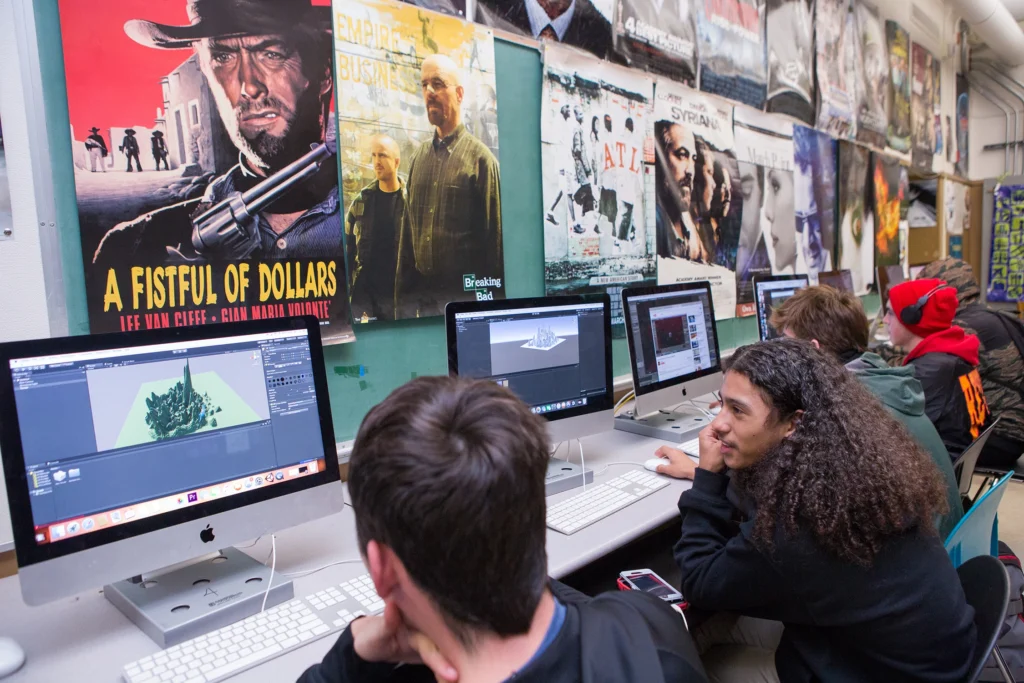
“As computer science, including artificial intelligence, begins impacting all aspects of our lives and careers, it is crucial that we understand how best to teach all children in learning computing concepts and critical thinking skills so that they are better prepared to engage with and work through and even against technologies along their future educational, professional, and personal pathways,” says Jean Ryoo, CS Equity Project director of research. “Most importantly, we should be learning from the experiences of students whose communities have been denied access to meaningful computing education opportunities to ensure more equitable and healthier schooling experiences.”
The research team collaborates closely with district, teacher, and student partners to create data collection protocols and collect and jointly analyze data.
“Students are best positioned to tell us what is working or not in terms of their computer science engagement, identity, agency, and learning,” adds Ryoo. “Our project seeks to amplify their voices. Students need a seat at the table in shaping the future of computing education.”
A significant focus of the CS Equity Project research effort is to strengthen learning for educators, who in turn, impact student learning and engagement. Their research showed that not only did teachers need and want support from school leaders, but also that school counselors often did not understand the importance of computer science and were not actively engaged in efforts to increase student access. In some ways, counselors were acting as gatekeepers deciding who was getting into computer science class.
The CS Equity Project used that research to develop a model of professional learning they called Summer of CS, bringing together teams of teachers, school leaders and school counselors to participate in learning opportunities to further equity in computer science education. Joining in partnership with the Sacramento County Office of Education, the first Summer of CS in 2019 brought together approximately 100 teachers and school counselors, with hundreds more participating in following summers.
The CS Equity Project evaluated the program and used evidence of its success to scale and sustain this pilot project into a statewide program called Seasons of CS with funding from a $20 million Educator Workforce Investment Grant. Through statewide program expansion across California’s system of support, this unique research-backed professional learning model for educators, paraprofessionals, administrators, and counselors has engaged more than 1,000 teachers each year.
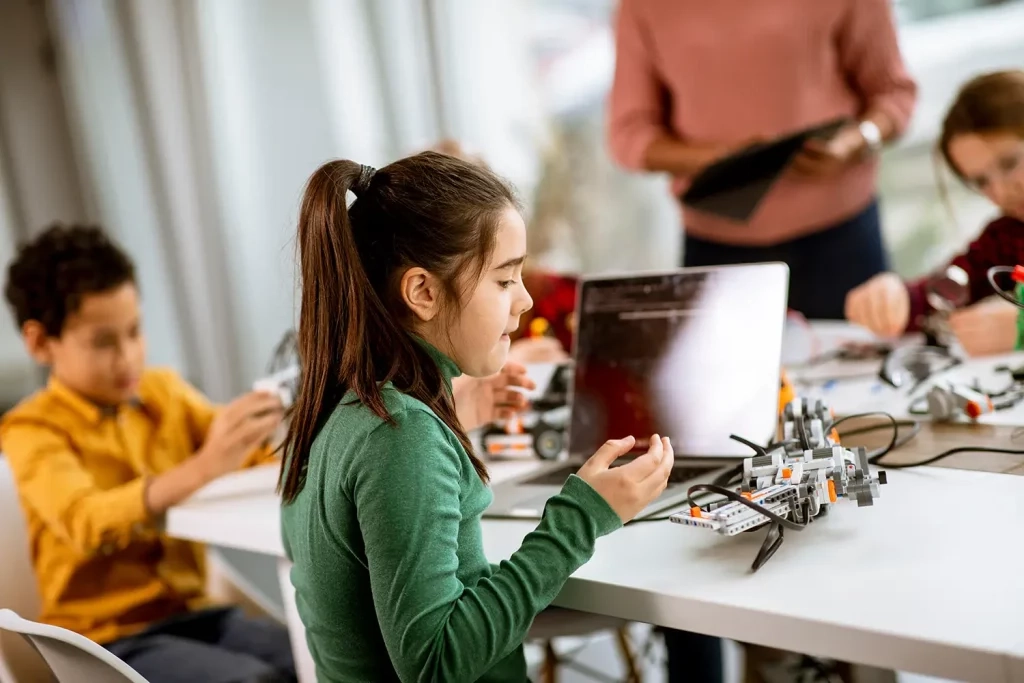
The CS Equity Project recently launched a new effort, Plugging Into Power, a research project aiming to build the capacity of community-based organizations in California serving parents, students, and low-income families of color to advocate for equity in computer science education at the state level, while learning to encourage their students to take advantage of and success in increased course offerings in CS and AI.
With continued funding from the Siegel Family Foundation, Expanding Computing Education Pathways and others, the project is undertaking research to understand what families and community members know and think about the value of learning computer science in schools, and what schools, administrators, and educators can do to engage families to learn more about it. That knowledge will fuel efforts to build capacity to increase demand at the local level for high-quality computer science education to further access to college, careers, and civic participation.
“In all of our projects, we strive to build community while collaboratively creating knowledge and resources that are useful to educational researchers as well as to students, families, teachers, school leaders, and policymakers,” says Ryoo. “This is only possible through research – both qualitative and quantitative – that shines a light on shared concerns across researcher and practitioner communities and that help us all to understand and document the stories, perspectives, experiences, and quantifiable impacts of truly positive and consequential pedagogy, curricula, and policies. Our research is critical to advancing understanding not only about how and why people learn, but also what makes that learning truly meaningful.”
